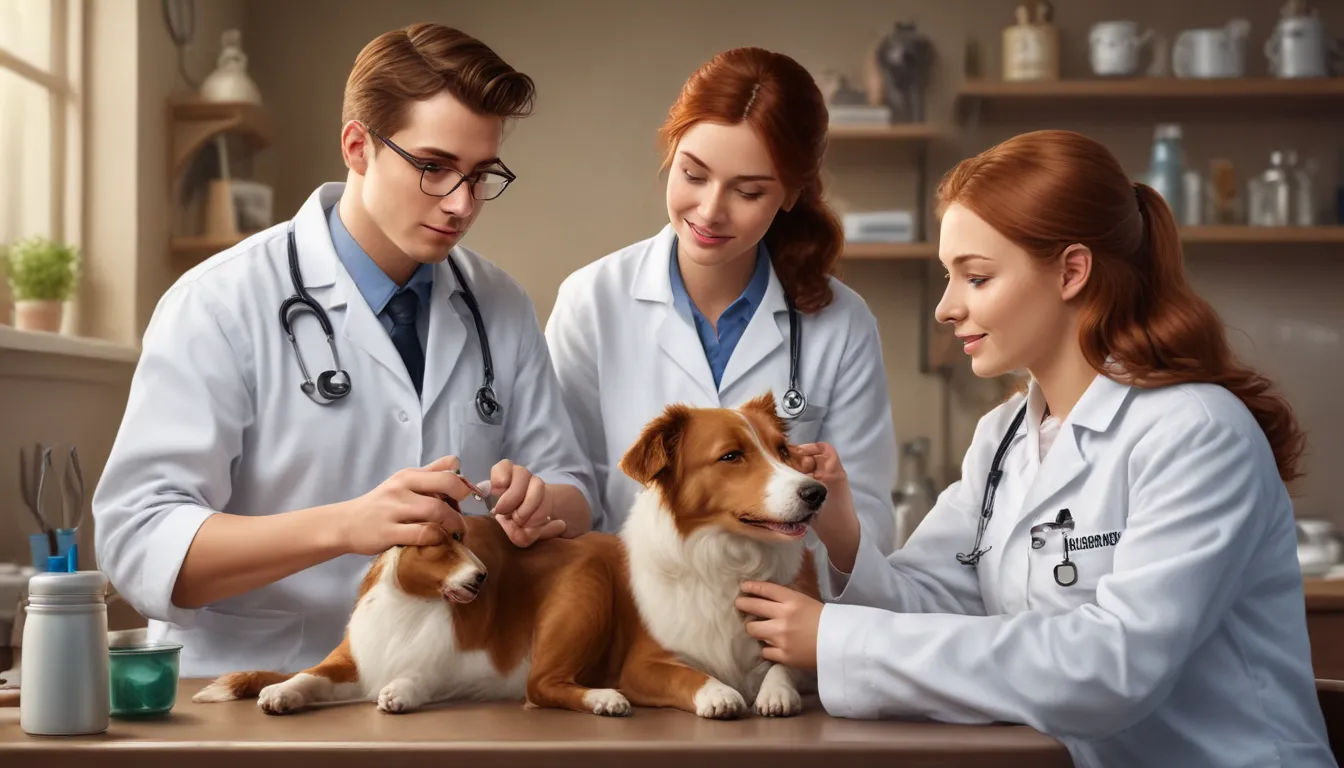The pictures we use in our articles might not show exactly what the words say. We choose these pictures to make you interested in reading more. The pictures work together with the words but don’t take their place. The words still tell you the important facts.
Taking care of your furry companions goes beyond just providing food and shelter. Regular veterinary check-ups are essential for maintaining their health and well-being. These visits offer a comprehensive health assessment that can detect issues before they become serious, ensuring a long, happy, and healthy life for your beloved animals. From vaccinations to weight monitoring, these appointments provide a snapshot of your pet's health status and are an excellent opportunity for pet owners to ask questions and receive valuable advice on nutrition, behavior, and care.
Why Regular Veterinary Check-Ups Are Essential
Regular veterinary check-ups play a crucial role in maintaining your pet's health. These visits allow veterinarians to assess your pet's overall well-being, detect potential health issues early on, and provide necessary vaccinations, parasite control treatments, and dietary advice. Early detection often leads to easier and more effective treatment, ensuring your furry friend stays healthy and happy for years to come.
What Happens During a Veterinary Check-Up?
During a veterinary check-up, several essential tasks are performed to ensure your pet's well-being:
- Weight Check: Pets are weighed to monitor for any significant weight gain or loss, indicating potential health issues.
- Physical Examination: Veterinarians conduct a thorough physical examination to check for any abnormalities in your pet's body.
- Vaccinations: Necessary shots are administered based on your pet's vaccination schedule to protect against diseases.
- Parasite Control: Pets are checked for parasites, and preventive treatments are given if needed.
- Dental Check: Dental health is assessed, and recommendations for dental care or treatments are provided.
- Blood Tests: These tests can aid in detecting diseases like diabetes, kidney issues, or thyroid problems early.
- Diet and Nutrition Advice: Proper guidance on diet and nutrition is provided to keep your pet at a healthy weight.
The Importance of Dental Checks in Pets
Dental health is a critical component of a pet’s overall well-being. Poor dental hygiene can lead to dental diseases, causing pain and more severe health issues. During a check-up, veterinarians can identify signs of dental disease and recommend treatment or preventive care to ensure your pet's mouth stays healthy.
How Often Should Pets Visit the Vet?
The frequency of veterinary visits depends on your pet's age and health status:
- For Puppies and Kittens: Young pets should visit the vet several times during their first year for vaccinations and health screenings.
- Adult Pets: Healthy adults typically need an annual check-up, while some may require more frequent visits depending on their health.
- Senior Pets: Older pets often need semi-annual check-ups to monitor for age-related health issues.
Vaccinations Are Key to Preventing Disease
Vaccinations are essential in protecting pets from various infectious diseases, ensuring they live long and healthy lives. There are two types of vaccines:
- Core Vaccines: Recommended for all pets to protect against diseases like rabies, distemper, and parvovirus.
- Non-Core Vaccines: Given based on the pet's lifestyle and risk factors, protecting against diseases like Lyme disease or kennel cough.
The Role of Blood Tests in Pet Health
Blood tests are crucial in veterinary medicine as they provide valuable information about your pet's health status, allowing for early detection of diseases and conditions. Two common types of blood tests are:
- Complete Blood Count (CBC): Provides insights into the pet's immune system, red cell count, and ability to carry oxygen.
- Biochemistry Profile: Evaluates enzymes and levels of substances like glucose and proteins, offering clues about the health of organs like the liver and kidneys.
Why Parasite Control is Crucial
Parasites pose significant health risks to pets and humans alike. Regular check-ups ensure pets are protected against these parasites through preventive treatments. Two main types of parasites are addressed during check-ups:
- External Parasites: Treatments for fleas and ticks protect pets and prevent infestations in homes.
- Internal Parasites: Deworming treatments protect pets from worms that can cause digestive problems and serious diseases.
Conclusion: A Commitment to Your Pet’s Well-Being
Regular veterinary check-ups are vital in ensuring your pet's health and happiness. By understanding the importance of these visits and what they entail, you can proactively care for your furry companions. Remember, early detection of potential health issues can make all the difference in your pet's well-being. So, don't wait for signs of trouble; schedule regular appointments to provide the care your pet needs and deserves. Here's to many more joyful years with your four-legged friends, all thanks to the invaluable insights gained from those essential vet visits.






